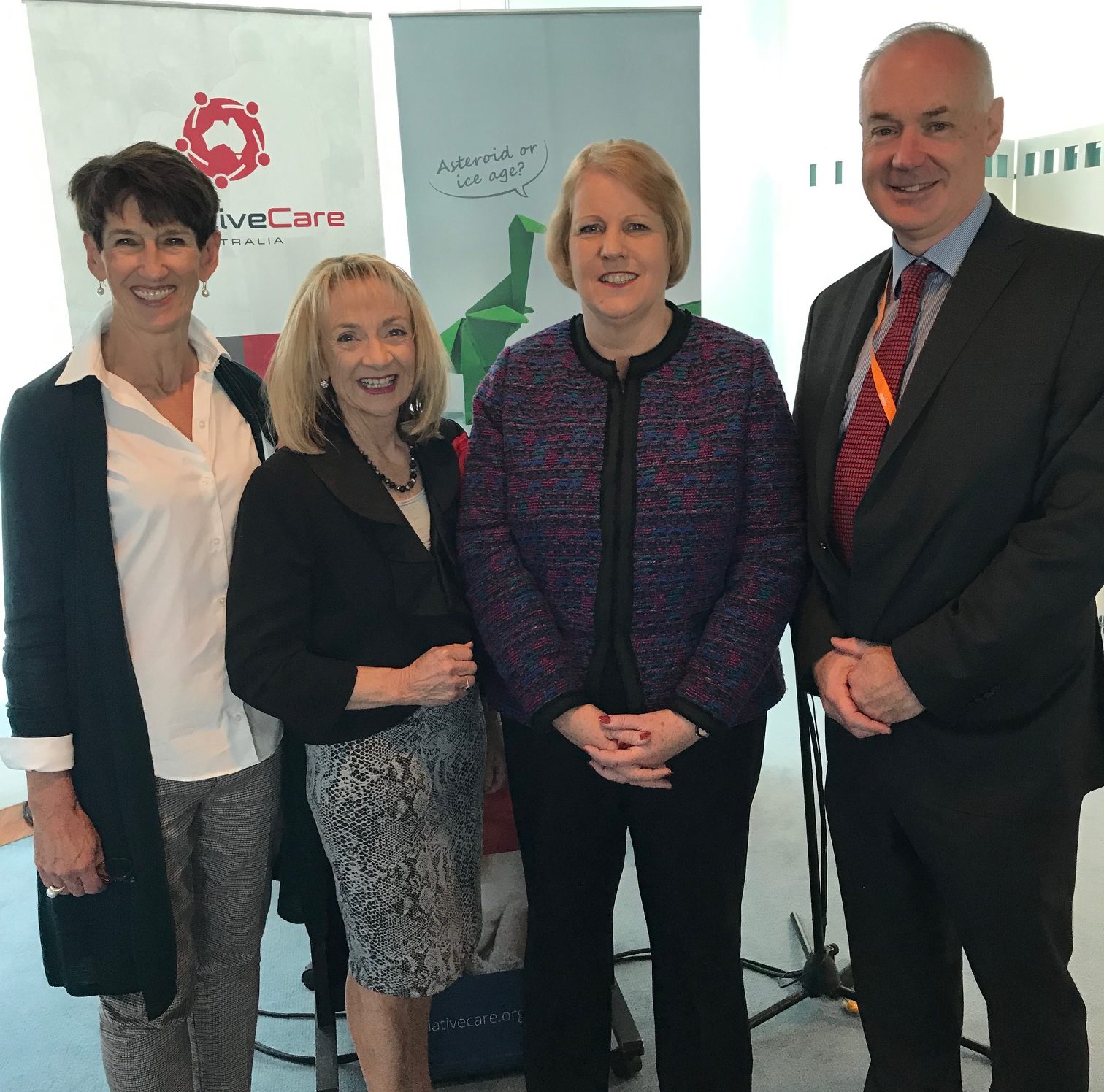Championing palliative care through collaboration

Palliative Care Australia today hosted its first Parliamentary event since the 46th Australian Parliament was officially sworn in on 2 July 2019, using the opportunity to highlight key issues facing the palliative care sector nationally.
At a special morning tea to kick start the Parliamentary Friends of Palliative Care Group, PCA Board Chair Dr Jane Fischer spoke of the importance of collaboration and parliamentary leadership to work towards high-quality palliative care for all Australians.
“We know that there is inequitable access to palliative care across Australia,” said Dr Fischer.
“Far too many are missing out and falling between the cracks in our health care system, however where it is available, Australia is world leader in palliative care practice.”
Dr Fischer paid special tribute to Senator Catryna Bilyk and the Hon Nola Marino MP, who have both been co-convenors of the Parliamentary Friends of End of Life Group for many years; over seven years for Ms Marino and five years for Senator Bilyk.
“PCA appreciates your commitment and dedication in your ongoing role as co-convenors, your collaboration on this important topic, that of championing quality palliative care for all Australians and raising the profile of palliative care with your colleagues here in Parliament House,” said Dr Fischer.
At the event Senator Bilyk and Ms Marino confirmed their longstanding commitment to palliative care, and encouraged their Parliamentary colleagues of the 46th Australian Parliament to support the newly named Friends of Palliative Care Group and use their collective influence to raise awareness and ensure palliative care remains a priority at a national, state and local community level.
In summarising the key issues facing the sector, Dr Fischer reiterated that Australians diagnosed with a terminal illness want to “live well and have a choice about the care they receive”.
“We all aspire to quality life for ourselves and those closest to us. When diagnosed with a life-limiting illness, I can assure you this feeling is magnified.
“What I know after years of caring for patients and families is that palliative care is about maximising quality of life, ensuring people live well as they approach the end of life and that they are prepared for their death so that it is hopefully a peaceful one-a good death and in their place of choice.”
Dr Fischer spoke of palliative care’s holistic focus - treating and managing not only the pain and physical symptoms, but also addressing the psychosocial, cultural and spiritual needs of both the patient and their family or carers.
“Importantly, this also includes ensuring that families have a support system in place to help them cope during the person’s illness and later in their own bereavement.”
Dr Fischer concluded by saying that whilst Australia has a good palliative care system, “there is still much to be done”.
“Palliative Care Australia upholds that palliative care is explicitly recognised under the human right to health. It is not an optional extra!”
“We need substantial coordinated political and financial investment by all jurisdictions to plan and prepare for the future where Australians will live longer, demand an improved quality of life, with access to high quality palliative care when living with a life-limiting illness.”
For more information, visit Palliative Care Australia’s vision statement Palliative Care 2030: Working Towards the Future of Quality Palliative Care for All
